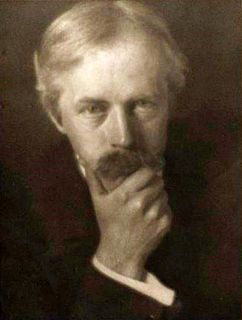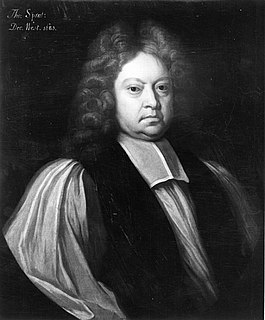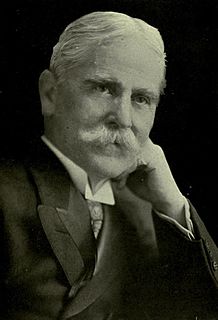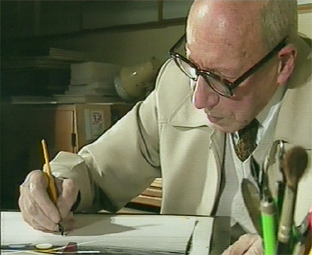A Quote by Arthur Symons
Hardly any one is able to see what is before him, just as it is in itself. He comes expecting one thing, he finds another thing, he sees through the veil of his preconception, he criticizes before he has apprehended, he condemns without allowing his instinct the chance of asserting itself.
Related Quotes
They have never affirm'd any thing, concerning the cause, till the trial was past: whereas, to do it before, is a most venomous thing in the making of Sciences: for whoever has fix'd on his Cause, before he has experimented; can hardly avoid fitting his Experiment, and his Observations, to his Own Cause, which he had before imagin'd; rather than the Cause to the Truth of the Experiment itself. Referring to experiments of the Aristotelian mode, whereby a preconceived truth would be illustrated merely to convince people of the validity of the original thought.
Another editor. That thing behind his ear is his pencil. Whenever he finds a bright thing in your manuscript he strikes it out with that. That does him good, and makes him smile and show his teeth, the way he is doing in the picture. This one has just been striking out a smart thing, and now he is sitting there with his thumbs in his vest-holes, gloating. They are full of envy and malice, editors are.
The meditative angler is not exempt from sensational periods. There are times when all the uncertainty of his chosen pursuit seems to condense itself into one big chance, and stand out before him like a salmon on the top wave of a rapid. He sees his luck hangs by a single strand of gut, and he cannot tell whether it will hold or break. This is the thrilling moment and he never forgets it.
All things are God's already; we can give him no right, by consecrating any, that he had not before, only we set it apart to his service - just as a gardener brings his master a basket of apricots, and presents them; his lord thanks him, and perhaps gives him something for his pains, and yet the apricots were as much his lord's before as now.
Science condemns itself to failure when, yielding to the infatuation of the serious, it aspires to attain being, to contain it, and to possess it; but it finds its truth if it considers itself as a free engagement of thought in the given, aiming, at each discovery, not at fusion with the thing, but at the possibility of new discoveries; what the mind then projects is the concrete accomplishment of its freedom.
The artist should paint not only what he sees before him, but also what he sees within him. If, however, he sees nothing within him, then he should also refrain from painting that which he sees before him. Otherwise, his pictures will be like those folding screens behind which one expects to find only the sick or the dead.
But who does not see that the work goes beyond the one who created it? It marches before him and he will never again be able to catch up with it, it soon leaves his orbit, it will soon belong to another, since he, more quickly than his work, changes and becomes deformed, since before his work dies, he dies.
When the father dies, he writes, the son becomes his own father and his own son. He looks at is son and sees himself in the face of the boy. He imagines what the boy sees when he looks at him and finds himself becoming his own father. Inexplicably, he is moved by this. It is not just the sight of the boy that moves him, not even the thought of standing inside his father, but what he sees in the boy of his own vanished past. It is a nostalgia for his own life that he feels, perhaps, a memory of his own boyhood as a son to his father.
A tutor should not be continually thundering instruction into the ears of his pupil, as if he were pouring it through a funnel, but, after having put the lad, like a young horse, on a trot, before him, to observe his paces, and see what he is able to perform, should, according to the extent of his capacity, induce him to taste, to distinguish, and to find out things for himself; sometimes opening the way, at other times leaving it for him to open; and by abating or increasing his own pace, accommodate his precepts to the capacity of his pupil.







































